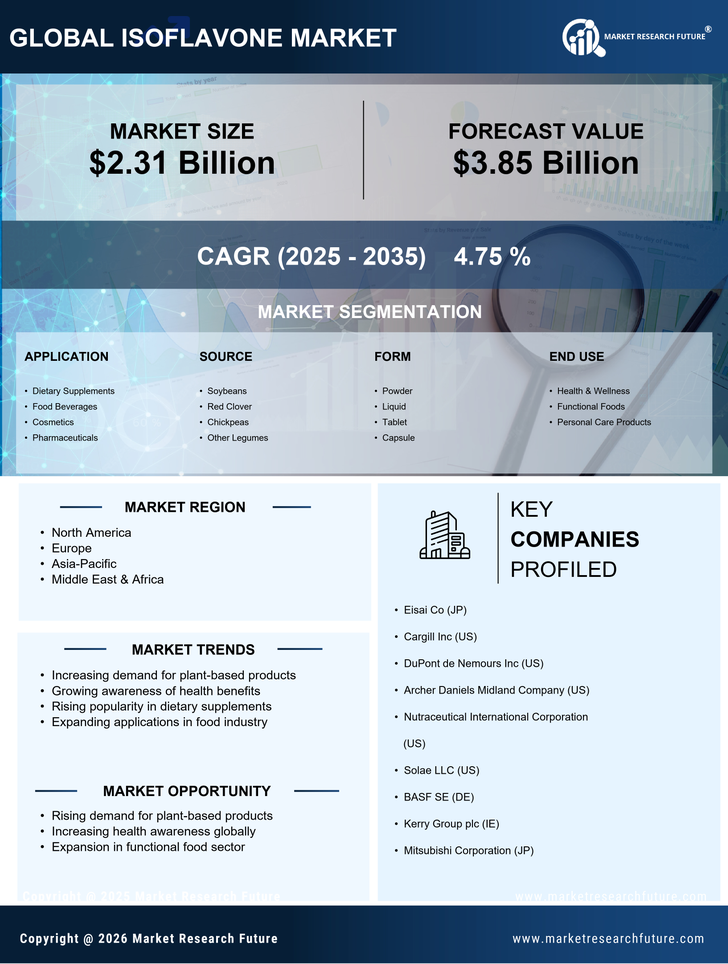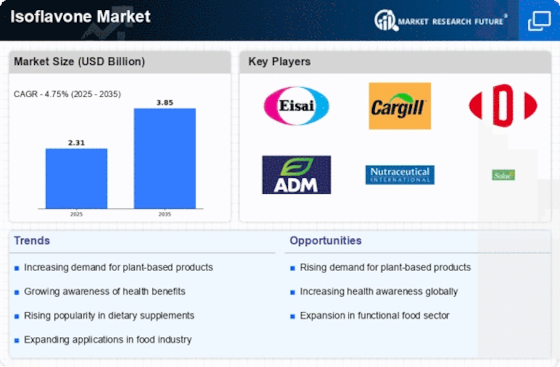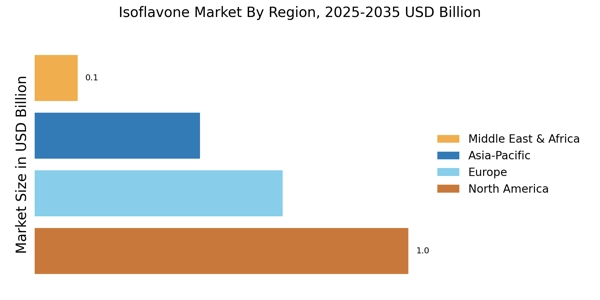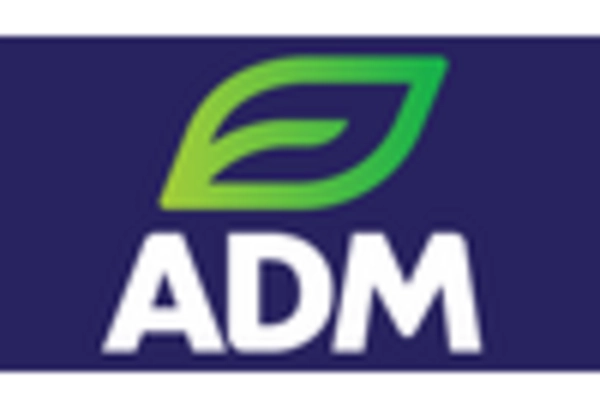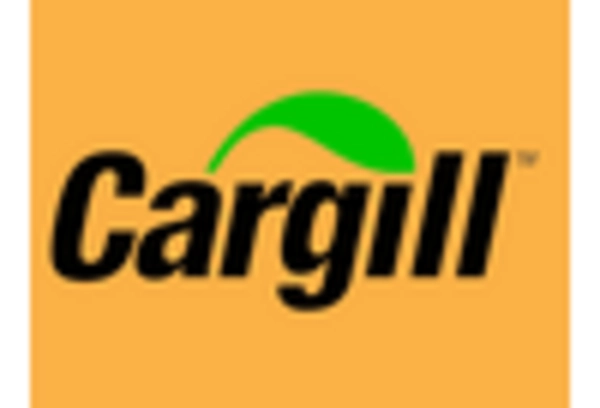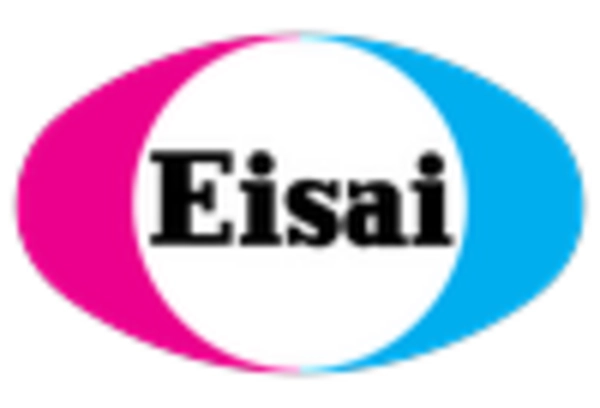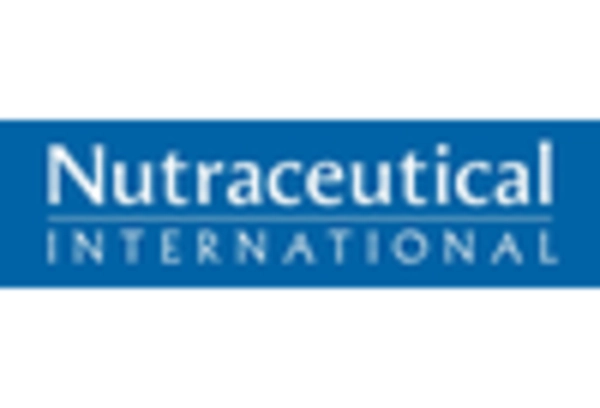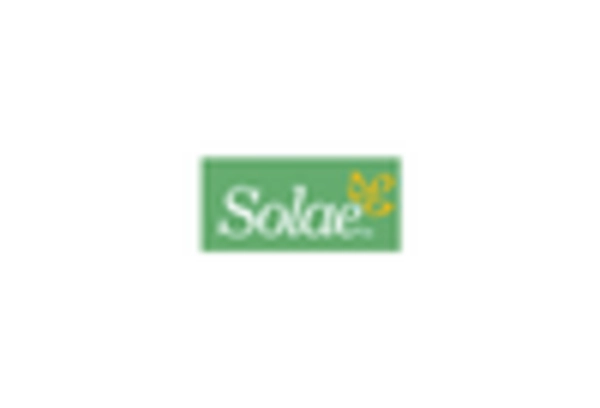Expansion of Functional Foods
The Isoflavone Market is witnessing a significant expansion in the functional foods sector, where isoflavones are being incorporated into various food products. This trend is driven by the increasing consumer preference for foods that offer health benefits beyond basic nutrition. Products such as fortified snacks, beverages, and dairy alternatives are increasingly featuring isoflavones, appealing to health-conscious consumers. Market data suggests that the functional foods segment is expected to grow at a rate of around 8% annually, reflecting a shift towards preventive health measures. As manufacturers recognize the potential of isoflavones in enhancing product appeal, the Isoflavone Market is likely to see a diversification of offerings, catering to a broader audience seeking functional benefits.
Growing Vegan and Vegetarian Trends
The Isoflavone Market is benefiting from the rising trends of veganism and vegetarianism, as isoflavones are predominantly found in plant-based sources, particularly soy products. As more consumers adopt plant-based diets for ethical, environmental, or health reasons, the demand for isoflavone-rich foods is expected to increase. Market analysis indicates that the plant-based food sector is projected to grow significantly, with estimates suggesting a market size of over 74 billion dollars by 2027. This shift towards plant-based eating habits is likely to enhance the visibility and consumption of isoflavones, positioning the Isoflavone Market favorably within the broader context of dietary changes.
Rising Awareness of Health Benefits
The Isoflavone Market is experiencing a notable surge in consumer awareness regarding the health benefits associated with isoflavones, particularly those derived from soy. Research indicates that isoflavones may play a role in reducing the risk of certain chronic diseases, including cardiovascular ailments and certain cancers. This growing awareness is likely to drive demand for isoflavone-rich products, as consumers increasingly seek natural alternatives to support their health. Furthermore, the market for dietary supplements containing isoflavones is projected to expand, with estimates suggesting a compound annual growth rate of approximately 7% over the next five years. As consumers prioritize health and wellness, the Isoflavone Market is poised to benefit from this trend, leading to increased product offerings and innovation.
Regulatory Support for Natural Ingredients
The Isoflavone Market is experiencing favorable regulatory support, which is encouraging the use of natural ingredients in food and dietary supplements. Regulatory bodies are increasingly recognizing the health benefits of isoflavones, leading to a more favorable environment for their inclusion in various products. This support is likely to enhance consumer confidence in isoflavone-containing products, thereby driving market growth. Additionally, as regulations evolve to promote transparency and safety in food labeling, the Isoflavone Market may see an uptick in demand as consumers seek products that are both effective and compliant with health standards. This regulatory landscape could potentially lead to increased innovation and product development within the industry.
Technological Advancements in Extraction Methods
The Isoflavone Market is poised for growth due to technological advancements in extraction methods, which enhance the efficiency and purity of isoflavone extraction from plant sources. Innovations in extraction techniques, such as supercritical fluid extraction and enzymatic methods, are likely to improve the yield and quality of isoflavones, making them more accessible for various applications. This could lead to a reduction in production costs and an increase in the availability of isoflavone-rich products in the market. As manufacturers adopt these advanced technologies, the Isoflavone Market may experience a boost in product quality and consumer satisfaction, ultimately driving market expansion.
